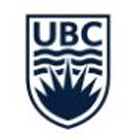Civil engineers shape the world we live in by analyzing, planning, designing, constructing, and maintaining the built environment. In this program, youll take courses and complete lab work in topics such as soil mechanics and foundation design, construction management, design of steel, concrete and timber structures, as well as municipal infrastructure design, coastal engineering and environmental impact studies.
Civil Engineering provides you with a foundation in basic sciences and specific civil engineering skills. The first year Engineering program and the second year Civil Engineering program include fundamental courses in mathematics, physics, chemistry, solid mechanics, fluid mechanics, and structures. In the third and fourth years, the curriculum largely consists of civil engineering courses in various sub-disciplines including Environmental, Geotechnical, Hydraulics, Structures, and Transportation Engineering. Laboratory work is carried out in the third and fourth years. In your final year, you will work in groups on a design or laboratory project. A number of technical elective courses in the final year allow you to take additional courses in a preferred area of civil engineering.
Campus features
The Civil Engineering Design Studio is a new facility where students can meet with peers and faculty to work on projects and gain a sense of the real-world working environment. The Earthquake Engineering Research Facility has outstanding capabilities, including three shaketables, able to simulate seismic events to a very complex level. Research in the department of Civil Engineering includes major projects in Materials, Coastal & Ocean Engineering, Environmental Fluid Mechanics, Project & Construction Management, Earthquake Engineering, Environmental Engineering, Geotechnical Engineering, Environmental Geotechnics, Hydrotechnical Engineering, Structural Engineering, and Transportation Engineering.






